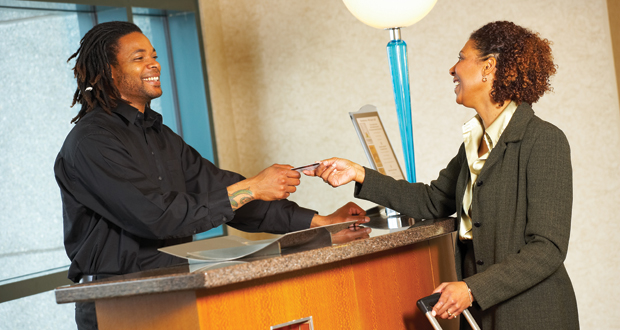
The heart of hospitality is all about human connection and creating experiences that are memorable and authentic. Delivering this level of service requires effort, time, and thought, but in the current competitive landscape, there is also immense pressure to deliver great experiences for less.
Technology has had the effect of increasing guests’ expectations, as these guests are now empowered to self-serve using various devices and online services. Guests are also cognizant of how their information is available to businesses through data collection and external online platforms. A recent PwC report states that, “The technological tools available to [customers] have put them in a position to demand a tailored, channel agnostic, socially conscious and social media-powered experience.” So while expectations skyrocket, there remains a gap between having information about a customer, and service teams being able to consistently identify and act upon that information in real time.
As a result, many hotels are now seeking digital tools that extend their operational capabilities. Since new tools and initiatives tend to carry an upfront and ongoing cost, it becomes necessary to demonstrate ROI to procurement teams. In addition to the standard Return on Investment measure, we’re increasingly seeing the term ROX (Return on Experience), a broader measure that recognizes the benefits to the customer as well as to the shareholder. This measure can include not just financial outcomes but also the behaviors, drivers and sentiment attached to your brand.
Using During-stay Feedback To Drive ROI
The financial benefits of customer experience programs can be the most difficult to pinpoint, and it’s here that many businesses find they need to isolate individual touchpoints. For example, isolating during-stay customer feedback tools makes it possible to measure specific benefits in the areas of:
- Guest experience scores
- Time efficiencies
- Cost of service recovery
- Loyalty rates
- Brand advocacy
In a 2019 Forrester study, it was found that using a digital feedback tool to manage and respond to customer feedback in real time helped hotels obtain an ROI of up to 280 percent over three years. When it comes to measuring for improved guest experience, the researchers calculated that improvements in NPS scores generate incremental value through additional purchases, churn reduction, and new sales driven by word of mouth.
Additionally, when guests are given the opportunity to provide feedback early in their visit and the feedback is promptly addressed, hotels can drastically reduce their number of negative reviews while cutting down on time spent contacting customers who left negative reviews post-stay.
Then there are the service recovery costs savings. Often, teams are pressured to waive certain fees when something goes wrong or provide discounts or vouchers on future bookings—it quickly becomes a costly way to keep guests satisfied. Interestingly, when staff addresses a negative experience quickly, it was reported lower-cost compensation is sufficient.
For large hotels and hotel groups, it’s nearly impossible to understand exactly how each guest is feeling during their stay. Increased face-to-face interaction will not always solve these problems, as many guests prefer to avoid an in-person confrontation. In this way, not only can technology provide a better solution to a customer experience problem, but also do so with greater cost efficiency than traditional methods.
By using a combination of digital tools together with human interaction, we have the ability to drive better customer experiences. When the digital tools also create cost efficiencies, and teams are able to map them back to specific operational improvements, the result is a strong ROI and ROX.











